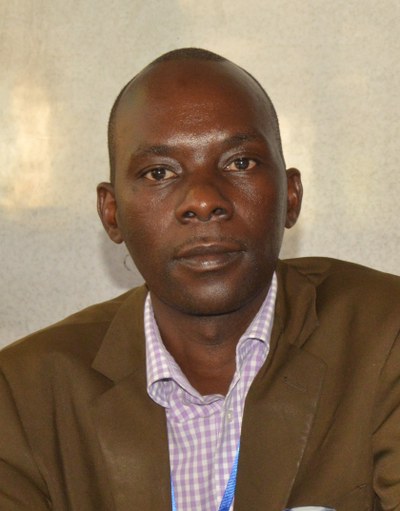Dr. Ezekiel Mecha
 |
GGL member from 2010 to 2014 University of Nairobi, Kenya
Portrait from April 24, 2019 |
|---|
When did you become member of the GGL?
I have been a member of the GGL from 2010 to 2014.
What section did you belong to during your time at GGL?
I belonged to section 6, reproduction in man and animals
Where do you work and what is your position?
I work as a lecturer at the Department of Biochemistry, School of Medicine , College of Health Sciences, University of Nairobi, Kenya.
How did you get your current position and how was the application process?
The University of Nairobi like any other universities of Kenya recruitment involves a highly competitive process. First, they advertise the vacant positions in Kenyan daily newspapers, they call for applications from qualified candidates, then short listing is done, followed by interview and then successful candidates are absorbed. For my case, the University of Nairobi did the advert in November 2014 and I applied, I was shortlisted for an interview which I did together with about 9 applicants and I was successful and I got the position in July 2015. But before joining the University of Nairobi, I worked at the Technical University of Kenya in Nairobi in the same capacity from September 2014 to June 2015 before moving to the University of Nairobi.
What do you do on a typical working day?
My main responsibility as a lecturer is teaching and research. So, I do teach both undergraduate and post graduate students at the Department of Biochemistry, University of Nairobi. I also supervise a number of master and doctorate students doing their research at the university of Nairobi, other universities and research institutes in Kenya and some in the University of Giessen. In addition, I do organize a number of workshops where I do act as a facilitator and a coordinator which are mainly funded by DAAD. My area of research includes understanding the pathophysiology of endometriosis, cancer, malaria, tungiasis and immunobiology of drug addiction.
What was your field of research during your doctoral studies? Are you still working on that?
I was in section 6, reproduction in man and animals and my research area was looking at pathogenesis of endometriosis. I am still doing active research on endometriosis in collaboration with my mentor professor Lutz Konrad of Giessen. I have been able to send one doctorate student to the University of Giessen and another one is joining in September 2019 courtesy of DAAD scholarship. In addition, I am also coming back to Giessen for three months (from June-August 2019) for re-invitation program courtesy of DAAD scholarship. So, I am actively involved in endometriosis research both locally and also at Giessen. Also, due to other emerging pathological conditions in Kenya, I am also doing other research like cancer, malaria and tungiasis.
When you think back to the different elements of the GGL program, what part was specifically important for you?
The doctoral development programme and lecturers were very important. In addition, the intercultural progams and conferences gave us some nice platforms to share and improve our knowledge and skills as far as scientific communication is concerned. The GGL offered us a platform to chair sessions during scientific conferences which offered us a chance to network with visiting scientists. Last but not least, laboratory rotations offered us a chance to experience scientific diversity in other laboratories abroad.
What piece of advice would you like to give to our new members?
My advice is to strongly encourage all doctoral students in life sciences to take GGL membership seriously. This is because GGL enriches both soft skills like scientific competency, presentation and negotiation skills and also helps in establishing strong networks among colleagues and mentors in Giessen, across Germany and globally.
Would you recommend the GGL for young students, who consider obtaining a doctorate in life sciences?
A doctorate in life sciences from GGL is highly prestigious since a part from getting a doctorate, you get a certificate outlining all the courses you did as a GGL member. In addition, some of the courses obtained at GGL can be applied once you graduate. Therefore, I would strongly recommend young doctoral researchers to join the GGL. It is an excellent graduate centre for life science researchers. GGL is an opener for global scientific research and a platform of lifetime scientific networking.
